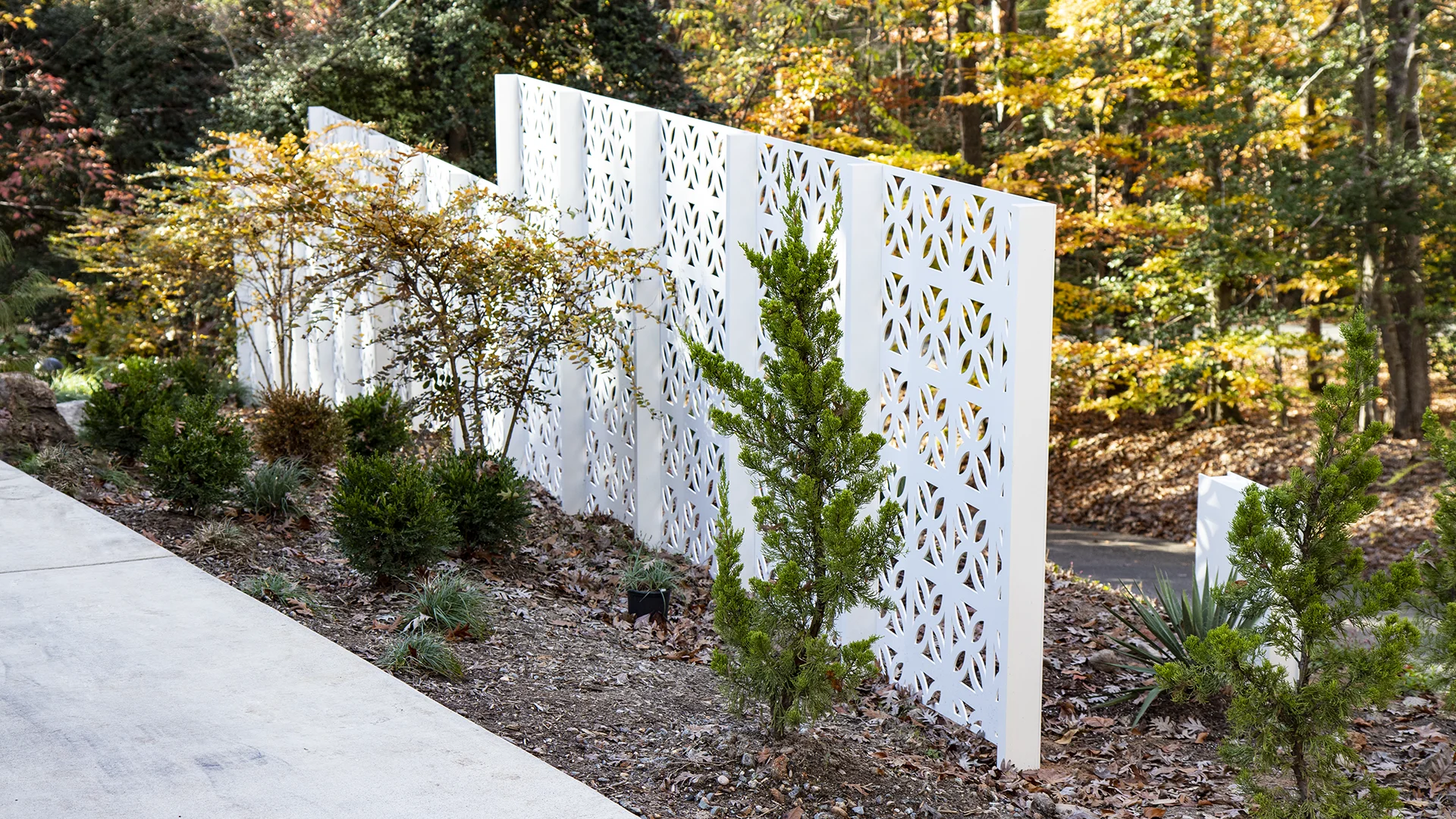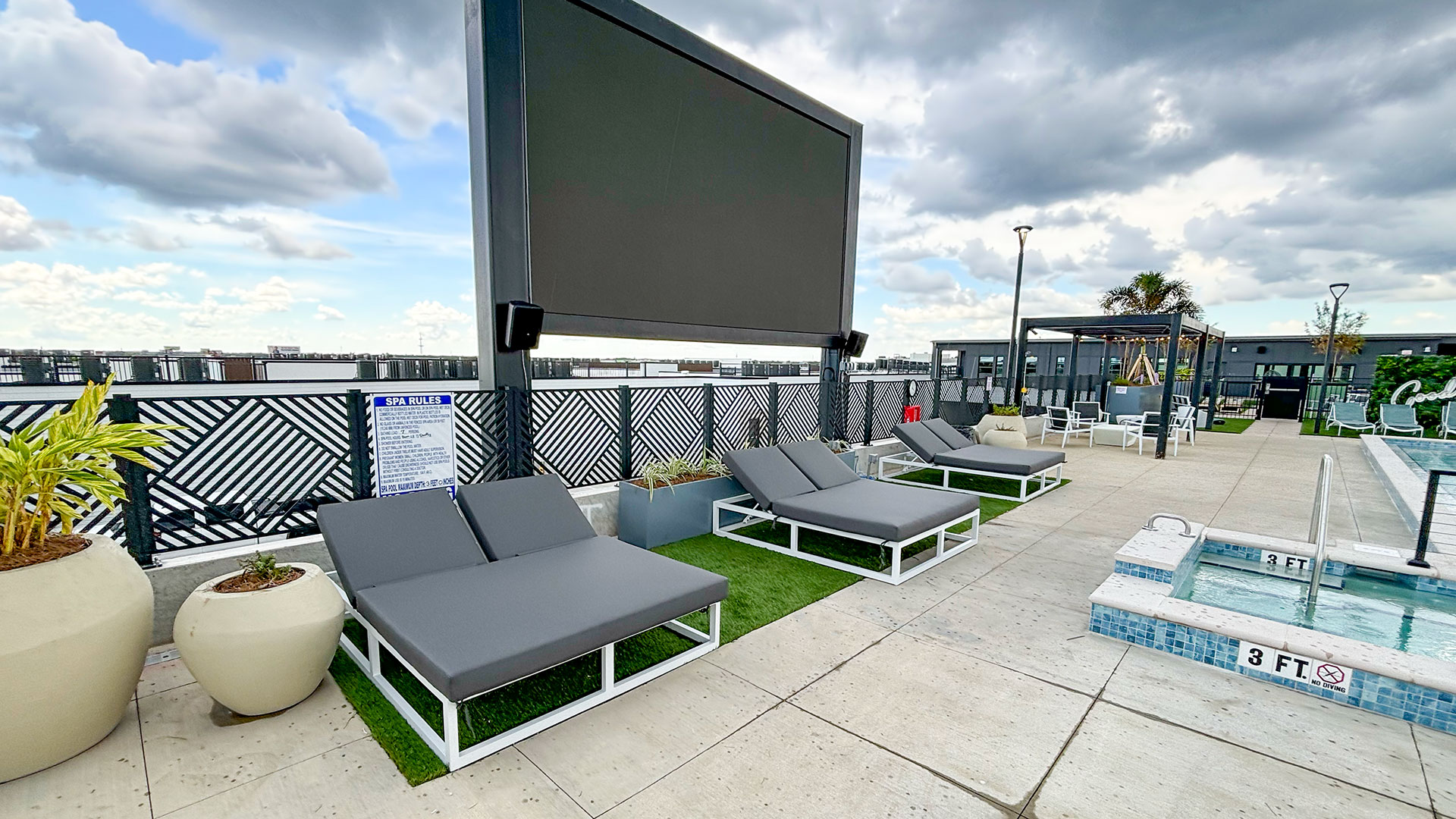 In today’s commercial landscape, the challenge of creating private yet inviting outdoor spaces has never been more relevant. Decorative screen panels have emerged as a leading solution, offering architects the perfect blend of form and function for commercial applications. From rooftop terraces to outdoor dining areas and corporate courtyards, these versatile elements are revolutionizing how we approach privacy design.
In today’s commercial landscape, the challenge of creating private yet inviting outdoor spaces has never been more relevant. Decorative screen panels have emerged as a leading solution, offering architects the perfect blend of form and function for commercial applications. From rooftop terraces to outdoor dining areas and corporate courtyards, these versatile elements are revolutionizing how we approach privacy design.
Decorative Privacy Panel Materials
The choice of material for decorative screen panels significantly impacts both performance and aesthetics in commercial applications. Each material offers unique properties that suit different project requirements and environmental conditions.
Aluminum leads the commercial market due to its exceptional durability and minimal maintenance requirements. Its superior strength-to-weight ratio facilitates efficient installation, while its variety of available finishes complements virtually any architectural style. The sustainable properties of aluminum align with LEED certification goals, making it particularly attractive for environmentally conscious projects.
Composite PVC (cPVC) excels in coastal environments where salt exposure poses challenges, though it requires larger structural profiles than aluminum to achieve similar spans.
Steel offers unprecedented strength for large-scale commercial applications, with the ability to be fabricated into thin profiles, though it requires proper finishing through powder coating or hot-dip galvanizing for corrosion protection.
Design Considerations for Commercial Applications
When implementing decorative screen panels or guardrails in commercial spaces, several key factors demand attention. The minimum recommended height of 3’6″ serves as a baseline for effective privacy screening while maintaining an open feel. This measurement has proven optimal for creating comfortable outdoor dining environments and defining corporate courtyard spaces. Whether establishing rooftop terrace boundaries or separating mixed-use commercial areas, this standard height creates a perfect balance between privacy and openness.
Modern Minimalist Trends
Current architectural trends favor clean lines and minimalist patterns in decorative screen panels. This approach complements contemporary commercial architecture while providing timeless appeal for long-term installations. The simplicity of modern designs offers remarkable flexibility in space definition, creating subtle visual interest without overwhelming the environment. Through thoughtful pattern selection, architects can achieve both aesthetic and functional goals while maintaining design longevity.
Practical Applications Across Commercial Sectors
Outdoor Dining Areas
According to the National Restaurant Association’s 2023 State of the Restaurant Industry report, 90% of restaurants that added outdoor dining during the pandemic have made it a permanent feature. Decorative screen panels excel in creating intimate dining environments while maintaining connection with the surrounding atmosphere. The versatility of aluminum enables custom height variations with integrated planters that enhance the natural ambiance. Modular configurations accommodate seasonal adjustments, and strategic placement helps manages sight lines to optimize the dining experience.
Corporate Courtyards
In corporate settings, decorative screen panels transform ordinary spaces into functional outdoor environments. They effectively define gathering spaces and create outdoor meeting areas while providing necessary wind protection. The professional aesthetics of aluminum screens complement corporate architecture while maintaining the desired level of privacy and openness.
Rooftop Terraces
Rooftop applications showcase the unique advantages of decorative screen panels. These installations provide wind mitigation without creating solid barriers, allowing privacy solutions that preserve valuable views. The lightweight nature of aluminum minimizes structural impact on existing buildings, while enabling flexible space division for multiple uses throughout the rooftop area.

Installation and Specification Guidelines
For successful implementation of decorative screen panels, architects and designers need to consider several crucial elements. First, structural integration requires careful attention to attachment methods appropriate for commercial buildings, along with detailed wind load calculations for elevated installations and proper foundation requirements for ground-level applications.
Material selection plays a vital role in project success. The aluminum grade should be appropriate for the local climate, with finish options selected based on environmental exposure. Panel thickness must be calculated based on specific span requirements to ensure long-term structural integrity.
Design parameters should address the balance between privacy requirements and visibility needs, while accounting for air flow considerations and light filtration preferences. Maintenance access requirements must be incorporated into the initial design to ensure long-term functionality.
Sustainability and Performance
Aluminum decorative screen panels contribute significantly to sustainable design goals through their inherent material properties. The recyclable nature of aluminum supports environmental initiatives, while minimal maintenance requirements reduce long-term resource consumption. The extended service life of aluminum screens ensures lasting performance, and their strategic placement can reduce energy impact on adjacent spaces through natural light management and air flow control.
Future Trends and Innovations
The future of decorative screen panels in commercial applications continues to evolve through several exciting developments. Smart materials are beginning to emerge in the market, while advanced finishing techniques offer new aesthetic possibilities. Innovative pattern designs push the boundaries of traditional screening, and enhanced modularity options provide greater flexibility for future modifications.
Create a Place and Space
Decorative screen panels, particularly in aluminum, represent a sophisticated solution for commercial privacy needs. Their combination of minimal aesthetic, practical functionality, and sustainable properties makes them an invaluable tool in the modern architect’s arsenal. As commercial spaces continue to demand more from their outdoor areas, these versatile elements will play an increasingly important role in creating successful, private environments that enhance the user experience while meeting practical requirements.